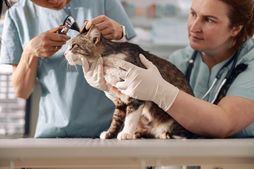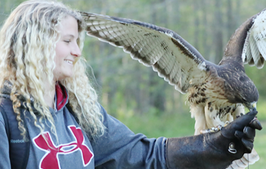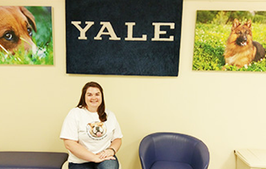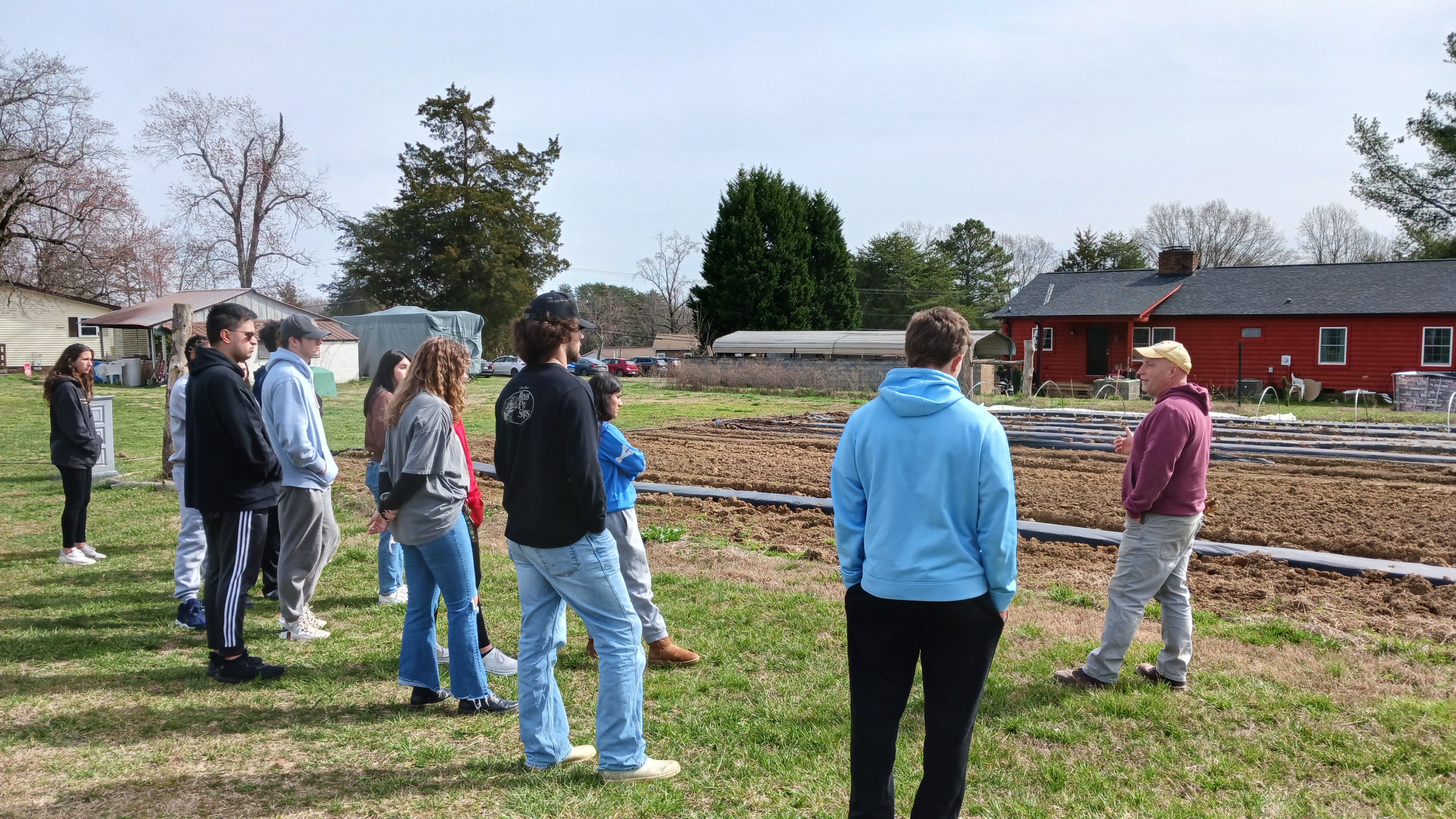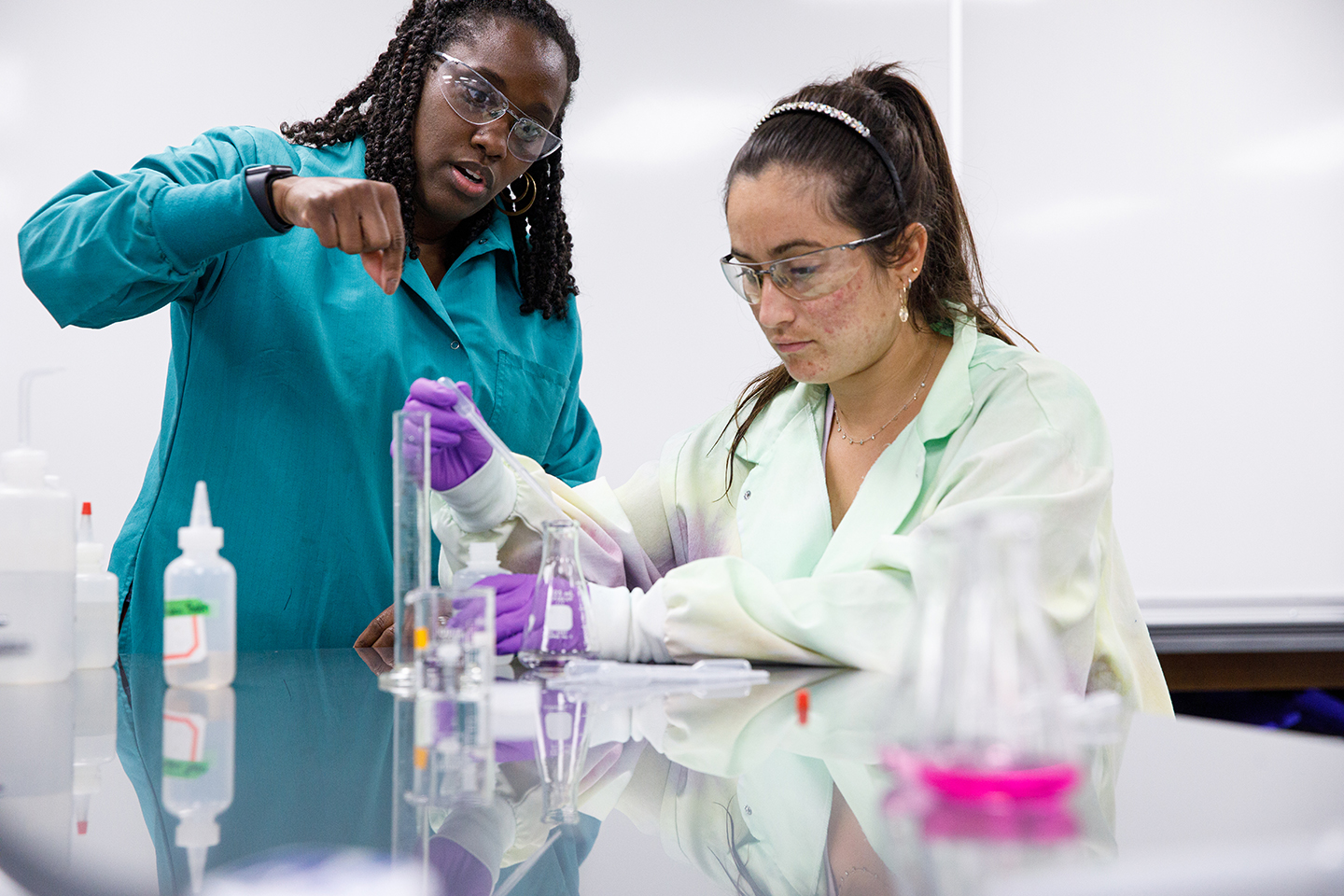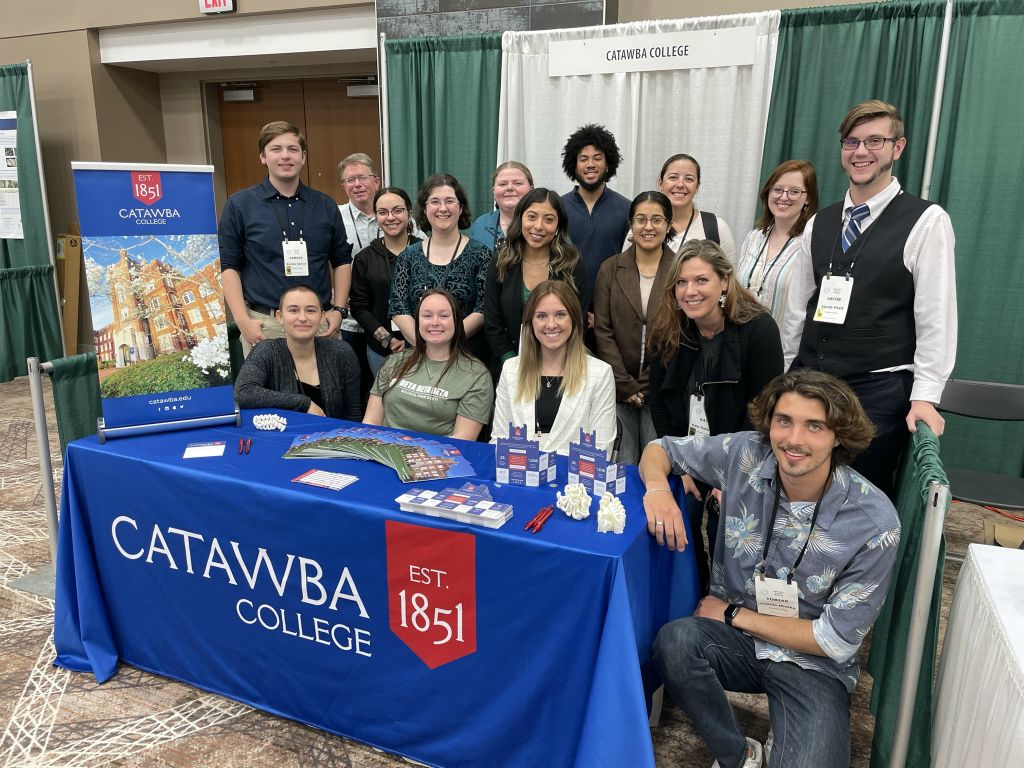
Pre-Veterinary Medicine
Take the Courses You Need to Enter Veterinary Medicine
Because much of the required coursework for veterinary medical schools is in the sciences, most Pre-Vet students at Catawba College select Biology, Biochemistry, or Chemistry as their majors. As long as the required prerequisite courses are taken any major can be pursued and degree awarded. Our advisors will assist you with confirming each of your prospective veterinary programs’ prerequisite course requirements.
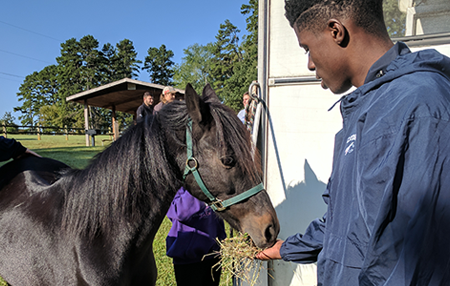
Admission to veterinary medicine school is highly competitive. It typically takes four years to earn the Doctor of Veterinary Medicine (DVM) degree, often followed by residencies or fellowships to gain experience in specialty fields. You should let your academic advisor know as soon as possible that admission to vet school is your post-graduation goal. Your advisor will work with you to ensure that you take the required prerequisite coursework, complete the required hours of clinical experience if necessary, and mentor you towards research experiences that will broaden your training and make your application stand out.
The average GPA of the admitted class at most veterinary medical schools is between 3.6 and 3.7 (with a 3.2-4.0 range). The average score on the Graduate Record Examinations (GRE) Verbal is 156 (142-168 range), GRE Quantitative is 154 (142-166 range), and 4.0 (2.5-5.5 range) on the Analytical Writing section. Catawba College out-of-state students should expect to need a higher GPA and GRE, as state veterinary schools' preference for admission is often given to in-state students.
We highly recommend that students planning to attend vet school call the admissions offices at the institutions at which they wish to apply and ask for the average GPA and GRE scores for their most recent admitted class. Those GPA and GRE scores should be the goal.

Olivia Myers '14 Biology Graduate; Chemistry and Environmental Science MinorsVet school was a completely different level - I had to study a lot more, but I do feel like I was well-prepared. I got a lot of hands-on experience at Catawba. I graduated from vet school with honors. There were quite a few people in my class who went to bigger institutions who didn’t graduate with honors, and I think that speaks to the education I was able to receive at Catawba.
Program Highlights
-

Pre-Health Advisory Committee
We provide advisement on preparing for admission to veterinary school, draft "Committee Letters" of recommendation, and conduct mock interviews.
-
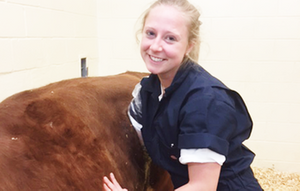
Pre-Veterinary Research
Conduct an Independent Study with a faculty member, apply for summer Research Experiences for Undergraduates (REUs), and complete a veterinary internship.
-

Leadership Experience
Get leadership experience and network with peers with similar interests by becoming an active participant in one of Catawba’s many clubs and organizations.
Participate
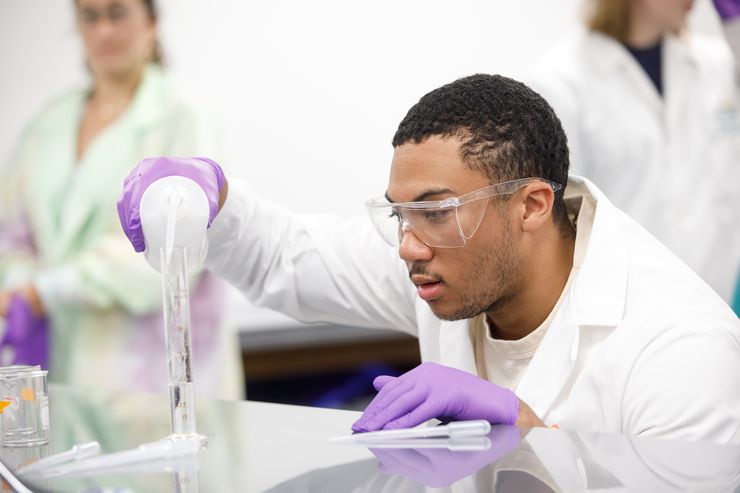
Participate
Get connected with the Pre-Health Club at Catawba College. In this organization, you’ll have the opportunity to meet alumni that have walked your same path towards a health career, as well meet other students with similar goals.
Program Details
Recommended Experiences
While it is important to have good GPA and GRE scores, vet schools want to know that they are admitting well-rounded individuals that are academically curious and mature and have the ability to work with animals. There are many experiences that students can have while at Catawba College to demonstrate their commitment in these areas:
Clinical Experience
Catawba students can get some of the best clinical experience by shadowing a veterinarian or completing a veterinary medicine internship at a clinic, farm, or zoo. We recommend students seek out opportunities to work with a variety of animals as early and often as possible, keeping an accurate and detailed journal of your experiences including dates, locations, contact information, and if it was paid or volunteer-based. The number of hours, type of animals involved, and a synopsis of the activities should also be recorded. A goal of 400-600 hours of pre-professional veterinary medical experience is recommended in multiple areas such as small and large animals, exotics, and emergency care. Our science faculty have excellent relationships with local DVMs and can help facilitate internships and shadowing experiences for you.
Working with Animals
Get a menagerie of experiences working with animals by volunteering at a raptor center, wildlife preserve, zoo, animal shelter, or rescue center. Get a job working at a zoo, aquarium, or pet store. These activities help fulfill the recommended 100 hours of "animal experience" required for admission to most vet schools.
Networking
Network and make connections with professionals that can write good letters of recommendation. Most programs require three letters; two of which should be from veterinarians or scientists that can comment on your specific abilities and personal qualities that would make you an excellent veterinarian. Your goal should be to have at least one practicing veterinarian write a letter of strong recommendation on your behalf.
Summer Enrichment Programs
Some veterinary medical schools provide summer opportunities for prospective students to do coursework, shadow veterinarians, and do research on their campus. Most even provide you housing and pay a stipend. Additionally, it looks great on your vet school application.
Resources For Veterinary Medicine
Prepare For Vet School

Prepare For Vet School
Most veterinary schools use the following as selection criteria for admission:
- Completion of Prerequisite Coursework
- Overall GPA and GPA of Required Courses
- Score on the GRE
- Experience in a Veterinary Medical Setting and in Research (400 hours minimum)
- Experience Working with Animals (100 hours)
- Community Service and Leadership
- Personal Statement
- Letters of Recommendation
- Application through the Veterinary Medical College Application Service (VMCAS)
- Interview
Net Price Calculator

Net Price Calculator
We know that a college education is one of the most important investments a student will make in their lifetime.
Catawba College's Net Price Calculator is a tool used to provide students with an estimate of the financial aid they might qualify for prior to receiving their official Financial Aid Award.
